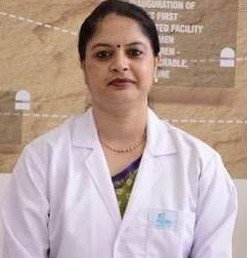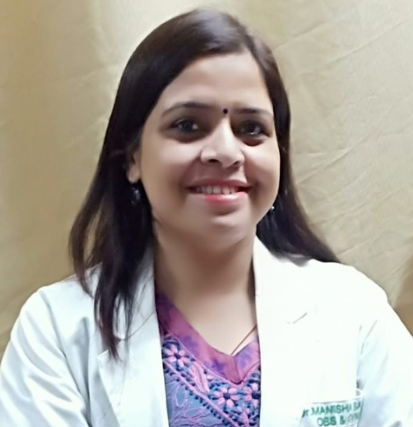Female Fertility Test: Cost, at-Home Test, Preparation, Result

Quick Summary
- Female infertility is a common problem faced by women worldwide.
- Female fertility tests are essential diagnostic tools to help assess a woman's reproductive health.
- There are many different types of female fertility tests, each with its own procedure and cost.
Table of Contents
- About Female Fertility Test
- Importance of Female Fertility Tests
- Female Fertility Tests At-Home
- Preparation for At-Home Female Fertility Test
- Post At-Home Fertility Test Tips
- Other Female Fertility Tests
- Cost of Female Fertility Tests
- Factors Affecting the Cost of Female Fertility Test
- When to Consult a Fertility Specialist?
- Takeaway
- Frequently Asked Questions
- References
Female infertility is one common problem faced by women worldwide. A woman may not be able to identify if she is infertile on her own. This is where female fertility tests come into play.
Female fertility test at home sample collection is done to check for fertility issues. They are essential diagnostic tools to help assess a woman's reproductive health. Read more about female fertility test types, procedures, costs, etc.
About Female Fertility Test
A gynaecologist advises a female fertility test to identify whether a female is fertile or infertile. This test helps to understand the root cause of infertility in females.
Irregular periods are a common indication of fertility problems. They can help gather information about the female’s reproductive health and suggest a suitable treatment plan.
Female fertility tests at home are generally done to check levels of hormones that play a role in affecting the fertility of a woman. This includes oestrogen, progesterone, luteinising hormone (LH) and follicle-stimulating hormone (FSH).


Importance of Female Fertility Tests
Female fertility tests play a crucial role in assessing a woman's reproductive health and her ability to conceive. These tests are designed to evaluate various aspects of fertility and identify any potential issues that may affect a woman's chances of getting pregnant.
Understanding the importance of female fertility tests can help individuals make informed decisions about their reproductive health and seek appropriate medical interventions when necessary.
Here is why female fertility tests are important.
Identifying Infertility: The primary role of a female fertility test is to help identify potential causes and problems that may affect a woman's ability to get pregnant, thereby enabling timely and effective treatments.
Determining Fertility Window: Female fertility tests are beneficial in determining a woman's fertility window, the period during which a woman is most likely to conceive. This can help couples in effective family planning.
Assessing Ovarian Reserve: The number and quantity of eggs available in the ovaries for fertilisation can be obtained using a female fertility test.
This information can be used to make alternative decisions about conceiving, such as IVF (In-vitro fertilisation), etc.
Early Diagnosis of Medical Conditions: Existing health conditions such as PCOD (polycystic ovary syndrome), thyroid disorders and endometriosis can be a risk factor for infertility.
Fertility blood tests for females can help diagnose and manage these conditions better with the right treatment and lifestyle measures.
Common Causes of Fertility Issues in Women
Some of the common reasons for fertility issues in women that may require fertility tests for accurate diagnosis include the following conditions:
Hormonal imbalances
Lesser number of eggs
Poor quality of eggs
Thyroid Disorders (hypothyroidism or hyperthyroidism)
Polycystic Ovary Syndrome (PCOS)
Uterine problems such as infections, fibroids and polyps
Fallopian tube issues such as pelvic inflammatory disease
Some women are at a higher risk of infertility in the following conditions:
Overweight or underweight
Cysts or tumours
Sexually transmitted infections (STIs)
Autoimmune disorders
A history of an ectopic pregnancy
Smoking and heavy alcohol abuse
Female Fertility Tests At-Home
There are several types of female fertility tests available for women that can provide valuable insights into their reproductive health and potential fertility issues at home itself. These include:
Ovulation Prediction Test Kit: Ovulation tests are female fertility tests done at home to help determine when conception is most likely to occur in your menstrual cycle.
It can aid in detecting an increase in luteinising hormone (LH), typically around 36 hours before the most fertile window.
The average ovulation prediction test kit has five to seven sticks, and it may take many testing days to detect an increase in LH. You must urinate on the stick or place it into urine that has been collected in a clean container to do the test.
Note: It's important to remember that not all women will experience ovulation within the following 24 to 36 hours, even though a good test indicates that it will.
Blood Tests: Fertility blood tests for females are performed to check the levels of various female hormones such as prolactin, thyroid hormones and the presence of male hormones (androgens).
1. Blood tests may also help assess the ovarian reserve and the number of healthy potential eggs remaining in the ovaries and may also help in diagnosing infections such as hepatitis and gonorrhoea, which may be a barrier to becoming pregnant.
2. You can contact a diagnostic lab that provides at-home services for fertility blood tests.Basal Body Temperature Charting (BBT): You can undertake this test to monitor your basal body temperature (BBT) to track ovulation. This technique has been used for years, but it is not considered as precise as other tests.
Preparation for At-Home Female Fertility Test
Preparing for an at-home female fertility test is an important step to ensure accurate results. While specific instructions may vary depending on the brand and type of test, here are some general guidelines to help you prepare for an at-home female fertility test:
Read the Instructions: Carefully read the instructions provided with the at-home fertility test kit. Familiarize yourself with the testing process, including any timing requirements and steps involved.
Make sure you understand how to collect and handle the samples properly.Timing: Timing is crucial for accurate results. Many at-home fertility tests require you to test at specific times during your menstrual cycle.
Pay close attention to the instructions regarding when to start testing, as well as the frequency of testing.Prepare the Testing Area: Create a clean and comfortable space where you can perform the test without any interruptions. Ensure you have all the necessary supplies and follow the instructions regarding sample collection, such as using sterile containers or devices provided in the kit.
Follow Pre-Test Guidelines: Some at-home fertility tests may require specific pre-test preparations. This could include refraining from urinating for a certain period before testing or avoiding certain medications or substances that could interfere with the test results.
Follow the guidelines provided to obtain accurate and reliable results.Understand the Result Interpretation: Familiarize yourself with how to interpret the test results. Different tests may use varying indicators, such as color changes or symbols.
Take note of the result reading window and any time limitations for result interpretation.
Remember that at-home fertility tests provide preliminary information but are not a substitute for professional medical advice. If your test results indicate any concerns or if you have further questions, consult with a healthcare provider for a comprehensive evaluation and guidance.
Post At-Home Fertility Test Tips
The lifestyle and food we eat have a huge impact on fertility. Hence, making healthy dietary and lifestyle changes can help with fertility. Some general lifestyle and dietary changes to improve fertility may include the following,
Eating a healthy diet containing green leafy vegetables and lots of fruits.
Reducing stress.
Getting proper sleep.
Exercising regularly.
Quitting smoking.
Reducing alcohol and caffeine intake.
Other Female Fertility Tests
In case the at-home test provides results which are suspicious, then contact your healthcare provider, who can recommend you further diagnostic tests to check your fertility.
The healthcare provider can recommend one of the following fertility tests for you based on your need.
Postcoital Test: In this female fertility test, the patient must engage in sexual activity a few hours before the doctor's appointment.
A sample of cervical mucus is obtained during the visit and analysed under a microscope. This helps determine the sperm's quality and capacity to interact with the cervical mucus and helps check if it is causing fertility issues or the female’s body.
Imaging Tests:
Transvaginal Ultrasound/Pelvic Ultrasound: To evaluate the health of the uterus and ovaries, the doctor may suggest getting an ultrasound.
This imaging test helps determine whether the follicles in the ovaries are functioning properly. Typically, an ultrasound is conducted around 15 days before the expected start of the patient's menstrual cycle.HyCoSy (Hysterosalpingo-Contrast-Sonography): The HyCoSy test is a popular female fertility test that helps examine the condition of the fallopian tubes.
To perform this test, advanced ultrasound technology is used. This diagnostic procedure is useful in checking for any blockages in a woman's fallopian tubes, which may be causing infertility.Hysterosalpingogram: Another female fertility test that the doctor may recommend is Hysterosalpingogram. It may also be referred to as HSG or tubogram. In this process, a liquid dye is injected into the uterus through the cervix and vagina.
Once injecting is done, the doctor takes a series of X-rays of the fallopian tubes. If a blockage is detected in one of the tubes, it indicates the obstruction, as the dye will not pass through it.Endometrial Biopsy: In this fertility test for females, the doctor does a medical procedure which involves collecting a small tissue sample from the endometrium shortly before menstruation.
The goal of this procedure is to check whether the endometrial lining is sufficiently thick for embryo implantation and development or not.
Hysteroscopy: The patient may be advised to undergo a hysteroscopy. It is performed by using a thin and flexible tube with a camera on the other end. It is inserted into the cervix leading to the uterus, to check the internal issues related to fertility.
Laparoscopy: Female fertility test using laparoscopy is done under general anaesthesia. It involves using a thin fibre-optic telescope, which is known as a laparoscope.
If any irregularities or abnormalities, such as endometriosis, scarring, or adhesions, are found, they may be eliminated using a laser.
Cost of Female Fertility Tests
The cost of female fertility tests may vary with the type of test the patient has been advised to undergo.
The at-home fertility test kit can cost between ₹ 60 to ₹ 120.
The cost of a medical fertility test can range between ₹ 10,000 to ₹ 50,000.
These costs can vary on several factors, such as the brand of the test, the number of test kits required, clinic/hospital fees, doctor’s consultation fees and much more.
Factors Affecting the Cost of Female Fertility Test
The cost of female fertility tests can vary based on several factors. Here are some key factors that can affect the cost:
Type of Tests: The specific tests included in a female fertility assessment can vary.
Basic tests such as at home tests, hormone level tests or ultrasound scans may have a lower cost compared to more comprehensive tests like genetic screening or advanced imaging techniques.Clinic or Healthcare Facility: The cost of fertility tests can vary between different clinics or healthcare facilities.
Factors such as location, reputation, and specialization of the facility can influence the pricing structure.Geographic Location: The cost of fertility tests can vary based on the geographic location.
In general, urban areas and regions with higher costs of living may have higher test prices compared to rural areas.Additional Services: Additional services such as consultation fees, follow-up visits, or counseling sessions may add to the overall cost.
It's important to inquire about the full range of services included in the quoted price.Insurance Coverage: Insurance coverage plays a significant role in determining the cost. Some fertility tests may be covered partially or fully by insurance, while others may not be covered at all.
It's important to check with your insurance provider to understand the extent of coverage.Individual Needs: The specific needs of an individual can also impact the cost.
Factors such as pre-existing health conditions, the need for specialized tests or treatments, or additional consultations with fertility specialists can contribute to the overall cost.
When to Consult a Fertility Specialist?
Consulting a fertility specialist can be a crucial step for women who are experiencing difficulties in conceiving or have concerns about their fertility. Here are some situations in which a woman is recommended to seek the expertise of a fertility specialist:
Age over 35 years old and have been trying to conceive for six months without success.
Have irregular menstrual cycles.
Who are aware of pre-existing fertility issues, such as polycystic ovary syndrome (PCOS), endometriosis, or a history of pelvic infections.
Experience previous pregnancy complications.
Who has been using contraception, such as hormonal birth control or intrauterine devices, for an extended period.
Who engage in certain lifestyle factors, such as smoking, excessive alcohol consumption, obesity, or significant stress.
Takeaway
Infertility in women is a very common problem. Female fertility tests may be advised by doctors when women find it difficult to get pregnant, even after a whole year of trying to conceive.
Various reasons may contribute to infertility in females. Apart from the female fertility tests conducted by the doctor, there are also at-home female fertility tests available. These at-home female fertility tests are easy and convenient to use.
At HexaHealth, our team of experts accurately diagnoses infertility in both men and women and gives the best-personalized treatment plans. We realise the importance of parenthood and know how special it is. We take care of helping you choose the right diagnosis and treatment at affordable costs and provide counselling to our patients trying to conceive.
Suggested Reads
| Signs of High Fertility in a Woman | Female Fertility Age Chart |
| Blood Test for Infertility Female | Does PCOS Cause Infertility |
| Signs of Infertility After Abortion | Laparoscopy for Infertility |
Frequently Asked Questions
What is a female fertility test, and how is it conducted?
A female fertility test is a medical procedure that evaluates a woman's reproductive health and ability to get pregnant. Women can undergo various procedures to determine their fertility, such as blood tests, ultrasounds, and other tests.
Is it possible to do a female fertility test at home? If yes, how?
Yes, it is possible to do a female fertility test at home. A female fertility test at home can be conducted using at-home fertility kits. These tests may require the woman’s urine sample to produce results.
How much does a female fertility test cost in India?
In India, the cost of a female fertility test is determined by various factors. These may include the type of test, clinic/hospital fees, doctor’s consultation fees, etc. To know more, contact experts at HexaHealth.
What preparations are required before taking a female fertility test?
To test for ovulation, you can either urinate directly on the test stick or collect urine in a cup and place the stick in the urine. The results of the test are typically available within approximately 5 minutes.
How long does it take to get the results of a female fertility test?
The tests results from female fertility tests at home may take about 5 minutes to show. However, the time taken for the test results for other tests may vary with the type of test.
What are the different types of female fertility tests available?
The different types of female fertility tests available include the following,
At-home female fertility test kits, such as ovulation kits
Blood tests
Basal Body Temperature Charting (BBT)
Postcoital test
Ovulation testing
Imaging tests
Hysterosalpingogram
Hysteroscopy
HyCoSy (Hysterosalpingo-contrast-sonography
Laparoscopy
Endometrial biopsy
How accurate are female fertility tests?
While home fertility tests offer convenience, they may not always provide the highest level of accuracy. It's important to note that these tests cannot provide a definitive diagnosis or determine the underlying cause of potential infertility.
In some cases, it may still be necessary to consult with a physician or healthcare provider to properly interpret the results and receive appropriate guidance.
Is undergoing a female fertility test necessary if you are trying to conceive?
Undergoing a female fertility test becomes necessary if you are trying to conceive and finding it difficult to conceive even after a whole year of trying. In such cases, female fertility tests may help identify the cause of infertility.
What factors can affect the results of a female fertility test?
The various factors that may affect the results of a female fertility test may include the following:
The timing before or after the menstrual cycle
Certain medical conditions
Stress levels
Effect of certain medicines or supplements
What should you do if you receive abnormal results from a female fertility test?
If you receive abnormal results from a female fertility test, discussing the ideal treatment options with your doctor is advised. Depending upon your test results, your doctor may prescribe medicines, lifestyle changes or other treatments such as IVF (in vitro fertilisation).
How to interpret female fertility test results?
You can interpret the female fertility test results at home by following the instruction given in the instruction manual or the patient information leaflet in the female fertility test kit pack.
References
All the articles on HexaHealth are supported by verified medically-recognized sources such as; peer-reviewed academic research papers, research institutions, and medical journals. Our medical reviewers also check references of the articles to prioritize accuracy and relevance. Refer to our detailed editorial policy for more information.
- Female Infertility: Causes, Risk Factors, Tests & Treatment [Internet]. Cleveland Clinic.

- NHS Choices. Causes - Infertility [Internet]. NHS. 2019.

- NIH. What are some possible causes of female infertility? [Internet]. http://www.nichd.nih.gov/. 2017

- Mayo Clinic. Infertility - Diagnosis and treatment - Mayo Clinic [Internet]. Mayoclinic.org. 2021.

- Fertility Test for Women [Internet]. American Pregnancy Association. 2017.

- Ovulation home test: MedlinePlus Medical Encyclopedia [Internet]. Medlineplus.gov. 2017.

- 8 of the best ovulation tests [Internet]. www.medicalnewstoday.com. 2021 [cited 2023 Jul 3].

- Best At-Home Fertility Tests [Internet]. Healthline. 2021 [cited 2023 Jul 3].

- Can lifestyle choices boost my chance of getting pregnant? [Internet]. Mayo Clinic. 2018.

- Trying to Conceive? Here’s When to Take an Ovulation Test [Internet]. Healthline. 2020 [cited 2023 Jul 3].

Last Updated on: 15 December 2023
Author
HexaHealth Care Team
HexaHealth Care Team brings you medical content covering many important conditions, procedures falling under different medical specialities. The content published is thoroughly reviewed by our panel of qualified doctors for its accuracy and relevance.
Expert Doctors (10)
NABH Accredited Hospitals (5)
Latest Health Articles

























 Open In App
Open In App